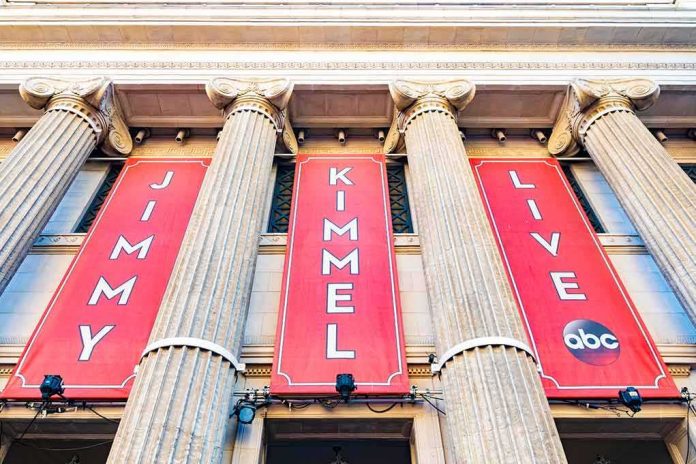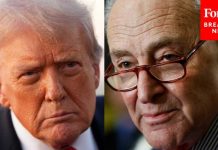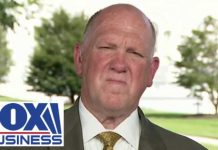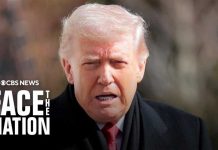
When liberal late-night television hosts Stephen Colbert and Jimmy Kimmel publicly praise Donald Trump, you know something extraordinary has happened in American politics.
Story Snapshot
- Colbert and Kimmel offered rare praise to Trump for brokering a Gaza peace agreement
- The deal includes ceasefire, prisoner exchanges, and transitional governance for Gaza
- 20 Israeli hostages freed in exchange for nearly 2,000 Palestinian prisoners
- Trump signed the “Trump Declaration” at Egypt summit formalizing the agreement
When Hell Freezes Over in Hollywood
Stephen Colbert and Jimmy Kimmel built their careers on relentless criticism of Donald Trump. These comedic generals in the resistance army rarely miss an opportunity to skewer the president. Yet Monday night brought something nobody saw coming: genuine praise from both hosts for Trump’s diplomatic achievement in Gaza.
The moment represents more than just political commentary shifting gears. When your harshest critics acknowledge success, it signals an accomplishment so significant that partisan politics temporarily step aside. The Gaza peace agreement that prompted this rare bipartisan recognition deserves examination for what it accomplished and what it might mean for American foreign policy.
The Summit That Changed Everything
The breakthrough came at a carefully orchestrated summit in Sharm El-Sheikh, Egypt, where Trump personally negotiated what he called the “Trump Declaration.” The agreement goes far beyond typical ceasefire arrangements, establishing a framework for Gaza’s demilitarization, amnesty for Hamas members willing to abandon violence, and a transitional Palestinian governance structure.
The prisoner exchange component alone represents unprecedented scope. Twenty Israeli hostages walked free while nearly 2,000 Palestinian prisoners returned home, creating celebrations across West Asia. Previous peace efforts focused on temporary truces. This agreement attempts to restructure Gaza’s entire political and military landscape, addressing root causes rather than symptoms.
Trump’s Theatrical Diplomacy Pays Dividends
Critics often dismissed Trump’s diplomatic style as mere theatrics, but results matter more than methods. The Egypt summit showcased Trump’s preference for high-stakes, personal negotiations where his presence and personality become integral to the process. Unlike traditional diplomatic channels that rely on months of preliminary discussions, Trump forced key stakeholders into direct confrontation with reality.
Jimmy Kimmel and Stephen Colbert gave Donald Trump some rare praise after the Gaza ceasefire.
“What a day for Donald Trump. “You know what? He finally did something positive today, and I want to give him credit for it — because I know he’s not the type to take credit for… pic.twitter.com/aMi2e0e9wx
— Variety (@Variety) October 14, 2025
The agreement’s terms reveal sophisticated understanding of regional dynamics. Demilitarization removes Hamas’s military threat to Israel. Amnesty provisions offer Hamas leaders a path away from violence. Transitional governance creates Palestinian political alternatives. These elements address each party’s core concerns while establishing mechanisms for sustainable peace.
When Critics Become Unexpected Allies
Colbert and Kimmel’s praise carries weight precisely because it contradicts their established patterns. These comedians understand their audiences expect Trump criticism, making their positive comments politically risky but intellectually honest. Their willingness to acknowledge Trump’s success demonstrates how significant achievements can transcend partisan boundaries.
The media reaction also highlights American foreign policy’s bipartisan potential when presidents deliver tangible results. Regardless of domestic political divisions, Americans generally support successful diplomacy that enhances national security and reduces global instability. Trump’s Gaza achievement taps into this broader consensus, earning recognition even from unlikely sources.
Sources:
Liberal late-night hosts offer credit to President Trump amid peace deal in the Middle East












